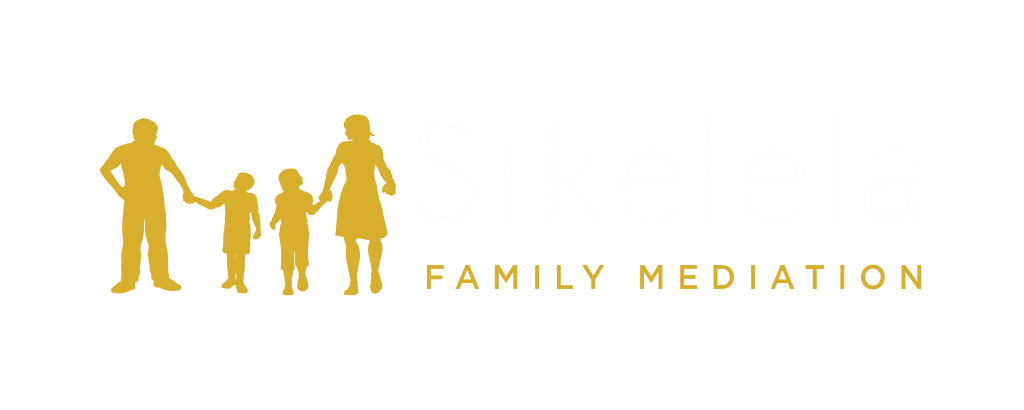Frequently asked questions about family mediation
Which documents do I require to file for a divorce?
- Copy of your ID/ Passport
- Confirmation of your residential address
- Copy of Antenuptial Contract (In married out of community of property)
- Marriage certificate
- Proof of income
- Completed expenditure table (applicable to children’s maintenance)
- Copies of any court orders issued relating to the parties for example current maintenance order or domestic violence order(s)
- Any other current agreements already in place for example Divorce settlement agreement, Maintenance Agreement, Parenting Plan (applicable to scenarios where amendments are required to Parenting Plan or Maintenance for children)
- Details regarding pension or provident fund (applicable to Divorce proceedings)
- Medical aid details (applicable to Parenting Plans, Divorces and Maintenance matters)
During mediation, the mediator may request additional documents such as proof of income, retirement insurance information, bank statements, a list of assets & liabilities, etc.
Can I finalise my divorce without the assistance of an attorney?
Yes, you can. After mediation, the mediator will draft all the required agreements for court submission and guide you on the process to follow to submit the necessary documents to the court.
Neither party will require a legal representative to submit the documents to court nor will they require legal representation to make the agreement(s) an order of the court
Are any agreements made through mediation legally binding?
The drafted and signed agreements will need to be submitted to the court in accordance with a legal process to make the agreements an order of the court. The mediator will guide you in terms of the process to follow. No legal representation is required to conclude the process.
Am I the Plaintiff or the Defendant?
The plaintiff is the one who initiates the proceedings. His/ her name will be listed first on the Combined Summons, pleadings (formal court documents), and court notices.
What is a Parenting Plan?
It’s an official court Agreement setting out how the children will be raised post the divorce or separation. The agreement will address amongst other things, matters such as:
- Care and contact
- Maintenance
- Education & religious upbringing; and
- Any other matter relevant to the Child’s upbringing.
During mediation, the parents and the mediator will compile a draft parenting plan setting out their intentions. In accordance with the Children’s Act, this plan will then be presented to the child(ren) by a qualified child psychologist as appointed by both parties.
Final Parenting plans are submitted and approved by the Family Advocate for the Magistrate/ Judge to grant the final divorce.
What are the costs of the Family Advocate?
Family Advocates are employed to work for the Department of Justice and Constitutional Development of South Africa. Their services are totally free of charge to the public.
What if we cannot reach an agreement through mediation
The matter will then be referred to Court as a contested divorce and the parties will need to appoint legal representatives to litigate the matter and take it to trial.
If I already have an attorney appointed, can I still mediate?
Yes, you can still mediate.
Is family mediation the same as marriage guidance or relationship counselling
No, marriage or relationship counseling helps couples to mend the relationship.
Family mediation is used when the relationship has irretrievably broken done with both parties understanding that the relationship is over, and they now wish to discuss and reach an agreement on the way forward after their relationship has ended.
Are the sessions confidential?
Yes, family mediation is confidential, and no information mentioned during the session(s) may be disclosed with one exception – if there is a safety risk to a child – the mediator is under a legal obligation to report this to the relevant authorities.
Can a mediator give legal advice?
Although the Mediator is legally qualified – mediators need to remain neutral and can therefore only give you information about laws and local court procedures but may not give legal advice.
What if there has been a history of violence or abuse in the family?
The parties have an obligation to disclose any court orders such as domestic violence orders made against a specific party. If an order is currently in place the mediator will engage with the parties on the process going forward as shuttle mediation will then need to be implemented to ensure adherence to the current court order. “Shuttle mediation” entails that the parties are in two separate rooms and the mediator moves between the parties, this ensures that there is no direct contact between the parties.
If there is no court order in place, but one-party expresses concern about his/ her safety, the mediator will assess whether mediation can be safe and effective after understanding the nature, frequency, and intensity of prior incidents of such alleged abuse. If safety can be assured and each party is able to understand the implications of decisions being considered, then mediation may still proceed successfully.
Can I deny my ex access to his/ her children if he/she withholds maintenance?
No, the duty to pay maintenance and the right of contact with your child are two totally separate matters and has no relevance to each other.

